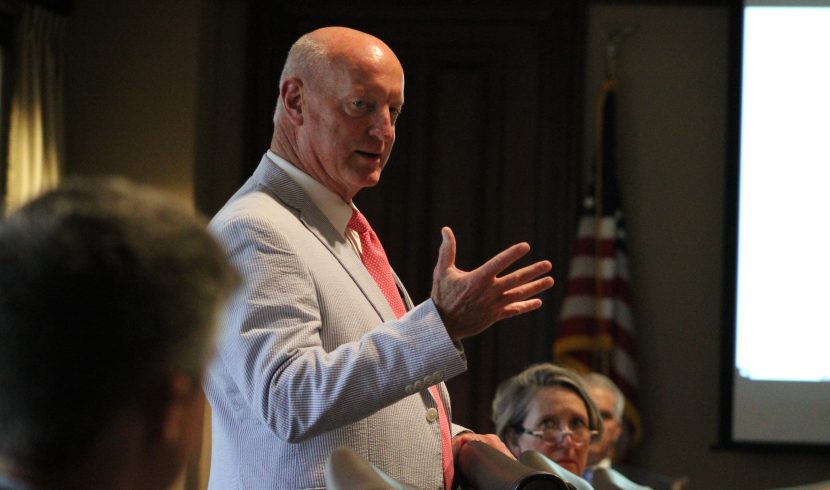MONTGOMERY, Ala. — A growing number of Alabama hospitals may soon lose inpatient services, most notably obstetrical and mental health care, due to seeking financial assistance from a federal program that comes with strict regulatory requirements.
Concerns over the trend were expressed Thursday by Alabama State Health Officer Dr. Scott Harris, who, during a meeting of the State Committee of Public Health, spoke to the growing number of hospitals seeking to participate in the federal program.
“In the news quite a bit lately has been Rural Emergency Hospital conversions, I know some of you know those stories very well,” Harris said.
“We’ve had a conversion in Bullock County already, we’ve heard announcements from Grove Hill (Memorial Hospital), and we’ve had a couple of other applications that have been filed as well that we know about, and there may be others.”

The program was established under the 2021 Consolidated Appropriations Act, and allows for rural hospitals to request designation as an Emergency Rural Hospital, or REH. Such a designation provides hospitals with higher reimbursement rates and substantial financial assistance, generally around $276,233 a month, or $3.3 million a year.
According to CMS, the goal of the designation is “to avert potential closure and continue to provide essential services for the communities they serve.” The REHs can provide emergency services, observation care and out-patient services that do not exceed 24 hours.
However, hospitals designated as an REH lose their ability to perform inpatient services. Harris warned that if the number of hospitals applying to the program grows, it could pose a serious problem for inpatient service access across the state.
“We certainly recognize that that’s a necessary step for many of these facilities that are just trying to stay afloat and maintain some level of services in their communities,” he said.
“The restrictions mean that you don’t have the same type of inpatient services available, so OB services go away, mental health services go away. It really is a crucial time for our hospitals; things are changing faster than I’ve ever seen.”
To date, only Bullock County Hospital has fully transitioned to having an REH designation. The transition, Alabama Department of Mental Health Commissioner Kim Boswell said recently, has already caused the hospital to lose 30 mental health beds.
“If you become an REH, that model doesn’t allow you to have very many inpatient beds in your hospital setting,” Boswell said, speaking Wednesday during a budget hearing in Montgomery. “So you might have had 20 beds before, but now you can only have ten, and then you have to decide are those beds going to be site beds or something else.”
Other hospitals that have either applied or publicly announced intent to convert to an REH designation include J Paul Jones Hospital in Wilcox County, East Alabama Medical Center-Lanier in Chambers County, and Grover Hill Memorial Hospital in Clarke County, according to Harris.
Harris later told Alabama Daily News that one of the main factors in hospitals gravitating toward seeking an REH designation was Alabama’s low Medicare reimbursement rates, which for many rural hospitals with low patient volume, aren’t sufficient to remain financially sound.
“It’s a really difficult time for Alabama’s hospitals right now, they have a tough time with the way that we’re reimbursed in this state, they essentially have fixed revenues if you will,” Harris told ADN.
“Our Medicare reimbursement is also the lowest in the country, and so that’s really frustrating. If you’re a hospital in Alabama and you have a patient, and you give them great care and they get better, if only you’d done that same exact thing across the line in Tennessee or Georgia, you would have gotten paid more for the same exact services because of the reimbursement.”
Given that Medicare reimbursement rates are set by the Centers for Medicare & Medicaid Services, a federal agency, Harris said there wasn’t much state lawmakers could do to target that issue specifically.
“The reason this is happening is because these hospitals can’t make it anymore financially in the environment that we’re in, (and) we don’t have any ability to change the federal rules about REHs of course, that’s a CMS rule set,” he said.
“We’re glad that these hospitals aren’t going away completely, but it’s a shame that you lose access to many of those inpatient services. I think the ones we’re going to feel most acutely is going to be the loss of mental health beds, and in some cases, OB services as well.”











